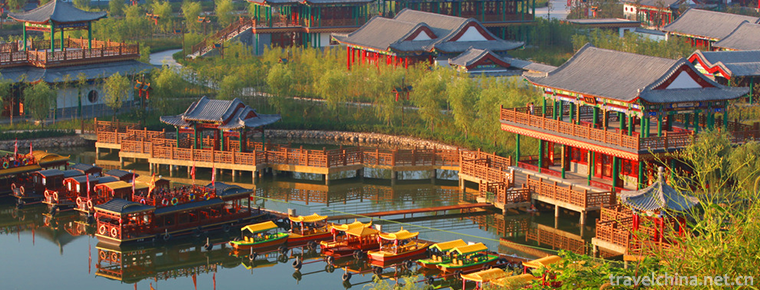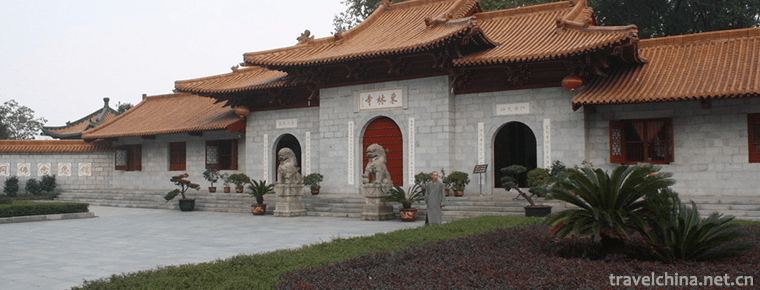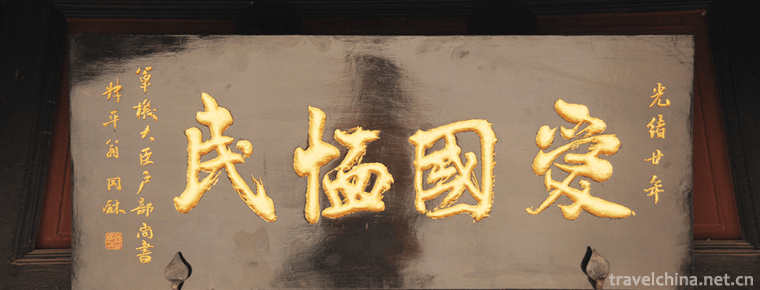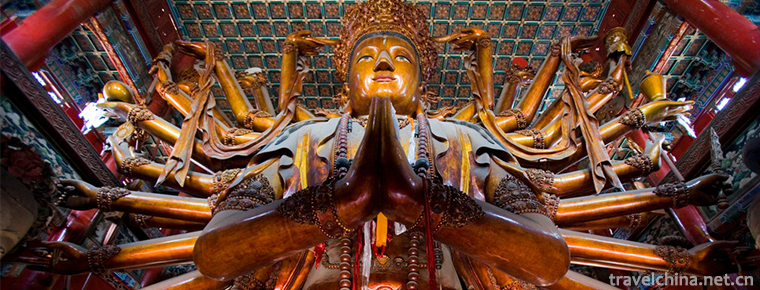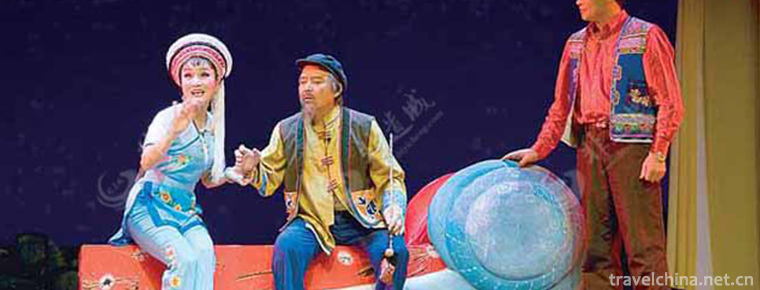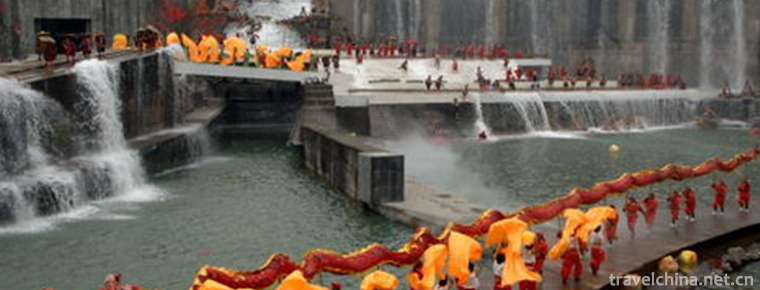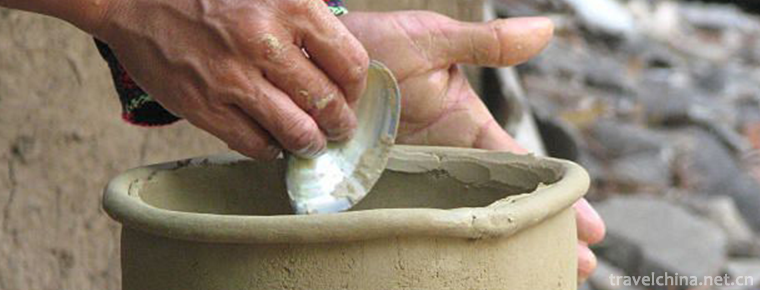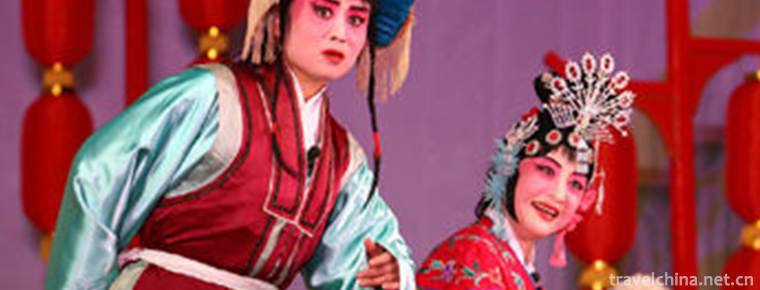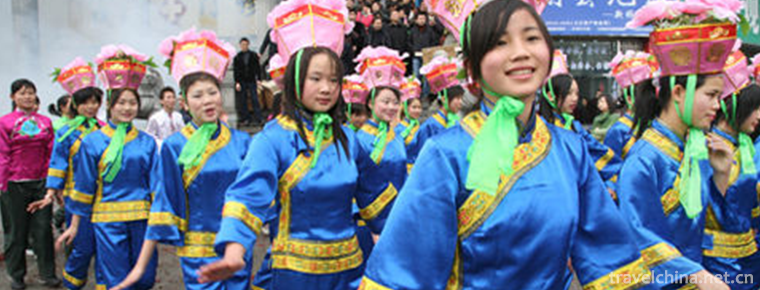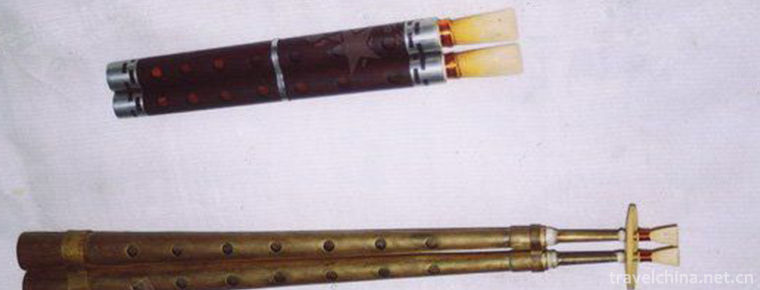Tianmen Folk Song
Tianmen Folk Song
Tianmen folk song is the traditional folk music of Hubei Province. Tianmen folk song has its unique style characteristics. It is not as rough and elegant as plateau folk song, nor as broad and long as grassland folk song, nor as cheerful jump and clear rhythm as Xinjiang folk song, nor as Wu Nong soft language, shallow singing, Tianmen folk song melodies beautiful lyrics, such as running clouds and running water, charming melody, simple and sweet, euphemistic.
On May 23, 2011, Tianmen Folk Song was approved by the State Council to be included in the third batch of national intangible cultural heritage list.
historical origin
Tianmen folk song has a glorious history. According to its origin, Huangmei and Yingshan counties in eastern Hubei, which are close to Anhui Province, have some Anhui tone; Enshi and Yichang in the West are close to Sichuan Province, which is somewhat sichuan-flavored; Xiangyang and Yunyang in the north are adjacent to Henan Province, which also have some Henan accent; and Shitou and Jianli in the south are adjacent to Hunan Province, or More or less with some Hunan flavor; and the most pure and authentic folk songs in Hubei, when the number of folk songs spread in the hinterland of Hubei Jianghan Plain Tianmen, Qianjiang, Wuyang area, the music style of the three places is very close. People in the circle often regard this as the essence of pure Hubei folk songs. Therefore, Tianmen folk songs play a decisive role in Hubei folk songs.
Tianmen relies on Jingshan and Jingmen in the north and Han River in the south, along with Xiantao and Qianjiang rivers. It has a long history, splendid culture, convenient transportation, and rich folk music materials. After liberation, a group of musicians who loved folk music had a great influence on the collection, collation, publication and distribution of Tianmen folk songs. In addition, a group of singers led by Jiang Guiying and many folk singers had introduced Tianmen folk songs, which made Tianmen folk songs occupy an important place in Hubei. Teacher Jiang Guiying once sang Tianmen Folk Song in Beijing three times and sang for the Party and state leaders in Zhongnanhai. Chairman Mao praised Jiang Guiying Lian after listening to "Happy Song". Good! It's as good as Hunan Huagu Opera!" From then on, Tianmen folk song went to the whole country. And the influence of the classical opera "Red Guard of Honghu Lake" makes the status of Tianmen folk song reach its extreme. Interestingly, the theme song "Honghu Red Guard" is not Honghu folk song, let alone Xiangfan folk song. It is a genuine Tianmen folk song, "Honghu Water, Waves and Waves" is similar to "Xianghe Ballad" written by musician Wu Qun in the early 1950s. The melody of "Honghu Water, Waves and Waves" is completely based on "Xianghe Ballad" with flower variations, while "Xianghe Ballad" is closely related to the traditional Tianmen folk song "Moon Watchman". In fact, at the beginning of the creation of "Red Guard of Honghu Lake", Hubei Opera Troupe went to Tianmen Huagu Opera Troupe to learn Huagu Opera music and Tianmen folk songs, and collect music materials. It lasted more than a month.
Tianmen City, located in the Jianghan Plain, is known as "the land of culture", and folk songs and dances are very popular. As early as more than a thousand years ago in the Tang Dynasty, Lu Yu, who was born in Jingling, Tianmen, was famous for his immortal monograph The Book of Tea, and Lu Yu was once an artist, who had edited and directed some songs, dances and dramas. Nowadays, some folk music in Tianmen City has the lingering charm of court music, which is thought to be closely related to Lu Yu. Of course, whether it is really transmitted by Lu Yu still needs to be examined. At the end of Ming Dynasty and the beginning of Qing Dynasty, Jingling School, headed by Zhong Hao and Tan Yuanchun, was unique in the literary world. The splendid Tianmen culture has a long history, and nurtured numerous Tianmen folk songs in this rich cultural accumulation land. Such as "Happiness Song", "Honghu Water, Waves", "Tianmen Comes to Congratulate the Master" and so on, so far it is still popular.
artistic characteristics
The musical characteristics of folk songs are often closely related to the tones of local languages. Conversely, the tones of local languages determine the musical characteristics of folk songs.
(1) Melody Characteristics
The melody of Tianmen folk song is mainly progressive and skipping. Such as:
"December Watchman"
(2) Modal characteristics
The main mode of Tianmen folk songs is Zheng (5) mode, accounting for about 60% of Tianmen folk songs, followed by Gong (1) mode, Shang (2) mode, Yu (6) mode and Angle (3) mode, accounting for 40% of the different proportion respectively.
Everyone usually knows the five-tone mode, seven-tone mode, four-tone mode and six-tone mode. Besides the above modes, there are rare three-tone mode in Tianmen folk songs, such as the Tianmen folk song "Yangye Beginning in the First Moon". The whole song has only one, three and five tones as the backbone tone. In addition, there are songs such as "Roller" and so on. People will feel unique style and strong flavor when they listen to them. Although the use of sound is very small, but can fully express rich thoughts and feelings, is really unique.
Multi-tone color, tone termination, tone-changing folk songs, alternating tones and so on all have the tradition of Jingchu's innovative people.
Links are widely used in Tianmen folk songs, which makes the characteristics of songs more prominent. Therefore, they are widely used in Tianmen folk songs and occupy an important position. We have roughly counted some new and unique linings, such as "Golden Shuttle", "Silver Shuttle", "Yanger Shuttle", "Ocean Shuttle", and so on. There are more than one hundred dozen kinds of folk songs, such as "Shuilima Zilangdang", "Yangliuziqing", "Yiya plum blossom", "Hey clothes, Hey clothes, Hey Hey", "Haiya crabapple blossom", which make Tianmen folk songs more lively, interesting and colorful.
(3) Genre Form
What kind of life, what kind of folk songs.
Tianmen folk song can be roughly divided into chant, field song, minor, lantern song, folk song, nursery song, religious song and other types. Among them, chants can be divided into several categories: Dahao chant, Damaige song, Cheshui song, Yangge planting, Grass weeding song, Shipman's chant, Handling chant and so on.
Some people say that folk songs are a kind of cultural carrier of "national root" and "national soul", reflecting the people's life history, precipitating all people's feelings, and displaying the life scene of labor, such as songs of labor chant, all belong to this category.
Judging from the traditional folk songs of Tianmen, most of the contents it reflects are love songs. Such as "Six Spring Festivals", "December Watchman", "Moon Blossom Tree", "Send Lang", "Watch Lang", "Watch Lang", "Watch Lang", "Watch Lang" and so on are everywhere. Some of them described the miserable life of the working people, such as the Three-stick Drum tune "Runaway Water", "Ten Sighs of Long-term Workers", "Remembering the Past Misery" and so on. There are also expressions of the oppressed people's resistance consciousness, such as resistance to feudal ethics, desire for personality liberation, and strive for marital autonomy of the "little son-in-law" and so on.
There are many Tianmen folk songs with high artistry, such as "The First Day of the Thirty-first Year". It reflects the pure thoughts and feelings of girls vividly through the great contrast between the two attitudes of girls towards loved ones and unloved ones through the specific Environment-The morning of the first day of the twentieth year, Bixing's method-tea cup and Mozhen. It is really amazing. It is like this in Tianmen folk songs. There are many kinds of folk songs with high quality and standard, which need professional and amateur music lovers to develop together.
Representative Works
Talking about Tianmen folk songs, Cheshui Love Song, Happiness Song and Cucumber are all familiar to people.
"Six Dragons in June" and "Sister's Heart Following Brother" were selected by Hubei Art Troupe as foreign cultural exchange programs to sing in Germany, Tianmen folk songs went to the world.
In October 2005, "Happy Song" was compiled and sung by a professional art troupe in Hubei Province. It was broadcast by CCTV's "Quyi Miscellaneous Talks".
In the classic old song contest organized by provincial TV station, "Tianmen Comes to Help the Master" won the first place in Tianmen Competition Area. This Tianmen folk song created 30 years ago was sighed by Jiao Dexiu, Minister of Propaganda Department of provincial Party committee, as "this is the most beautiful artistic enjoyment".
The song "Honghu Water, Waves and Waves" is from the Tianmen folk song "Moon Watcher Lang".
And the traditional folk song "Little Son-in-law" crowned with Hubei folk songs has also been sung throughout the country. "Little Son-in-law" also goes abroad, and many foreigners like to sing. There are "Xialiba people" in Tianmen folk songs, but there are still many "Yangchun Baixue".
Acacia of the Four Seasons is a folk song with elegant style, beautiful lyrics and melodies, and a poetic and picturesque mood. Autumn Acacia sings like this: "Autumn Acacia sweet-scented osmanthus flowers float, cold insects cry low to a high, slave anxiety. Beauty sits alone, frowning and frowning, who sprinkles Jade Xiao in front of the drizzle window, how can sad people hear the melancholy tone, Lang is out, far away from the mountains and rivers. Suddenly listen to the lonely geese outside the door, slaves have love letters, slaves have love letters, who can bring them? My husband, slave loves you, people don't know God knows. The lyrics are set off by such words as "cold insect", "drizzle", "lonely geese" and "yuxiao". They reveal from the bottom of their hearts the sad feelings of an infatuated woman in the autumn Silang, the bitterness of missing each other, and the melody is even more euphemistic, such as crying like complaining, sad and moving.
Inheritance Significance
New era and new life give Tianmen folk songs new vitality. The inheritance and development of folk songs have also gone through different stages of creation. In the 1950s and 1960s, more words were re-filled according to the tunes of old folk songs. In the 1970s, new folk songs compiled according to folk music materials occupied a dominant position. During this period, excellent folk songs emerged one after another, such as "Tianmen came to congratulate the president" and "Happy River in North Han", which were deeply loved by the masses and had far-reaching influence. From the 1980s to the 1990s, the lyricist of folk songs kept pace with the times, wrote many lyrics of eulogizing the new era and singing new life. Combining with the characteristics of lyrics, the author not only used Tianmen folk songs, but also absorbed modern popular songs and foreign music materials, and wrote a large number of influential and popular new folk songs. Folk songs such as Zeng Tengfang's Ci and Yu Yin's Songs of Fishing Songs Singing Golden Autumn, Wen Qing's Ci and Yu Yin's Life's Most Loving Hometown are widely disseminated throughout the province. There are also a number of Tianmen folk songs, such as "Kite Flying", "Six Dragons in June" and "Sister's Heart Following Brother" which went out of the country and sang to France, Austria and other countries.
Tianmen folk songs are deeply rooted in the fertile soil of people's life. They can be said to be deep-rooted, leafy and fruitful. As a folk song sings, "Singing is not a human subversion, but also passed down by the ancients of the previous dynasty. One person handed down three passes down nine passes on three passes on nine passes on, and the song sea washes away sand gradually deepens." Because of generations of singing, the song sea washes sand, Tianmen folk songs further reach the state of beautiful lyrics and melodious tunes. Special mention is the new folk song, singing the new voice of the people of Tianmen, harmony is the pace of the times, carrying forward the melody of modern civilization, is a flower of spiritual civilization blooming on the hot soil of Tianmen.
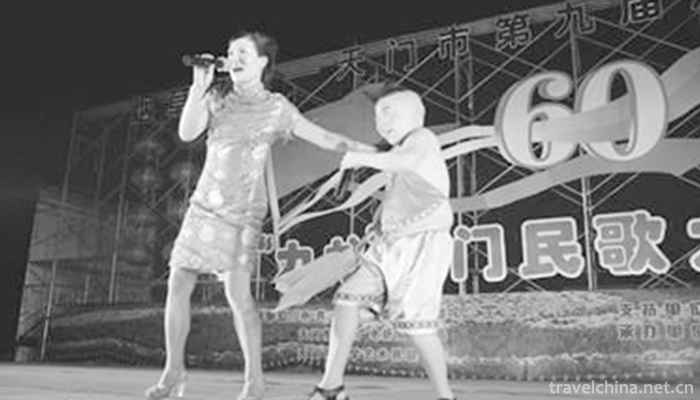

Tianmen Folk Song
-
Heng Dian World Studios
Hengdian Film and Television City is a large-scale comprehensive tourist area which integrates film and television, tourism, vacation, leisure and sightseeing
Views: 464 Time 2018-12-07 -
Donglin Temple
Donglin Temple, located at the foot of Lushan Mountain, Jiujiang City, Jiangxi Province, is 16 kilometers north of Jiujiang City and 50 kilometers east of Lushan Luling Street. Because it is east of X
Views: 156 Time 2018-12-20 -
Mars Manor Scenic Spot
Ma's Manor, located in Xijiang Village, 20 kilometers west of Anyang City, Henan Province, is the mansion of Ma Piyao, governor of Guangdong Province in the Qing Dynasty.
Views: 160 Time 2019-02-06 -
Puning Temple
Puning Temple is located in Chengde City, Hebei Province. It was built in the Qianlong period of the Qing Dynasty. The first half of the temple is Han-style,
Views: 186 Time 2019-02-07 -
Bai opera
After 1949, on the basis of blowing tunes, Bai folk opera "Dabenqu" tunes were further enriched and improved, renamed "Baiju". The Lyric forms are basically sung in Bai language an
Views: 224 Time 2019-04-03 -
Dujiangyan Drainage Festival
The Qingming Drainage Festival is a traditional festival in Dujiangyan, Sichuan Province. Every year during the Qingming Dynasty, Dujiangyan City welcomes the annual Qingming Drainage
Views: 247 Time 2019-04-28 -
Primitive Pottery Making Skills of Li Nationality
The primitive pottery making technique of Li nationality, the traditional handicraft technique of Changjiang Li Autonomous County, Hainan Province, is one of the national intangible cultural heritages
Views: 213 Time 2019-05-13 -
a kind of local opera popular in Shandong Province
Liuqiang, a local traditional drama in Jimo City, Shandong Province, is one of the national intangible cultural heritage.
Views: 262 Time 2019-05-14 -
Quanfeng Lantern
Quanfeng Lantern is a traditional folk art form in Quanfeng Town, Xiushui, Jiangxi Province. It is an artistic performance activity between lamp, opera and dance. Its main feature is the performance o
Views: 170 Time 2019-06-11 -
Sheng Guanyue
The term "Sheng wind music" is not only a popular name in Chinese folk, but also a scientific name in the current academic circles. It refers to the orchestral performance form consisting of
Views: 157 Time 2019-06-14 -
Anhui Normal University
Anhwei Normal University (Anhui Normal University), known as AHNU, is located in Anhui province. Wuhu City It was founded in 1928, and in the period of the Republic of China. National Anhui University
Views: 189 Time 2019-10-10 -
Yibin economy
In 2019, Yibin City will realize a GDP of 260.189 billion yuan, an increase of 8.8% over the previous year in terms of comparable prices. Among them, the added value of the primary industry was 27.764 billion yuan, an increase of 2.9%; the add
Views: 306 Time 2020-12-18
